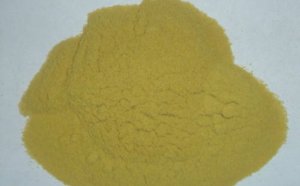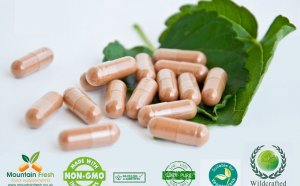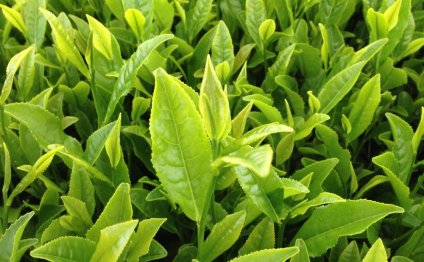
Green tea extract dosage
Expert advice on green tea to boost weight loss - how much to take - how often
by Jeff S. Volek, Ph.D., R.D.
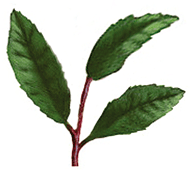 A greater interest and awareness in the potential of green tea to promote health and prevent disease is underscored by the increased amount of research money dedicated to understanding the biological effects of the bioactive components of green tea. A quick search of the popular scientific search engine Medline with the keyword "green tea" reveals more than 1800 papers in the last 20 years with over a third of those in the last 2 years. Collectively, these studies show green tea to be associated with a wide range of biological effects that improve health.
A greater interest and awareness in the potential of green tea to promote health and prevent disease is underscored by the increased amount of research money dedicated to understanding the biological effects of the bioactive components of green tea. A quick search of the popular scientific search engine Medline with the keyword "green tea" reveals more than 1800 papers in the last 20 years with over a third of those in the last 2 years. Collectively, these studies show green tea to be associated with a wide range of biological effects that improve health.
The bioactive polyphenolic compounds in green tea account for a third of the dry weight of the leaves. The predominant polyphenols are the catechins and include epicatechin, epicatechin-3-gallate, epigallocatechin, and epigallocatechin-3-gallate (EGCG). Most research has focused on EGCG as the predominant active ingredient.
Study shows green tea augments weight and fat loss
One of the more publicized uses of green tea is for weight loss based on studies that have shown increased metabolic rate and greater use of fat. In the first study, 10 healthy men with a wide range of body fatness spent 24 hours in a whole room respiratory chamber to measure metabolic rate on three different occasions. [1]
During these experiments, they consumed green tea extract containing 150 mg caffeine and 270 mg EGCG (divided into 3 doses), 150 mg caffeine or a placebo. The whole room respiratory chamber allows for continual measurements of energy expenditure and fat oxidation over a 24-hour period, as opposed to shorter time periods. There were no effects of caffeine compared to placebo but treatment with green tea extract was shown to increase 24 hour metabolic rate by 4% compared to a placebo.
This amounted to an increase in energy expenditure ranging from 65 to 200 kcal/day. This extra fat burning translates into about 0.7 to 1.5 pounds of fat loss over a month period. Furthermore, green tea caused a preferential use of fat over carbohydrate. No adverse effects were noted.
Researchers have found commercial green tea products to vary widely in EGCG content. To get 270 mg of EGCG per day would require drinking at least several cups of green tea and in some cases, more than 10 cups per day.
4-fold increase in belly fat lossAnother study examined the effects of 12 weeks of drinking green tea (690 mg total catechins/day of which 136 mg was EGCG) versus placebo on weight loss and several measures of body fat in men. [2]
After 12 weeks, men consuming the green tea had a two-fold greater weight loss (-5.3 vs -2.8 lbs) and fat loss (-3.1 vs -1.5 lbs). Additionally, this study also assessed both subcutaneous and visceral fat in the abdominal region using computed tomography imaging. Compared to placebo, green tea had a dramatic four-fold greater effect on reductions in subcutaneous and visceral fat in the abdomen, a region associated with higher risk for many chronic diseases. The study shows that green tea is an effective method for shedding fat, particularly in the mid-section.
Another study confirming the fat-mobilizing effects of green tea comes was published the International Journal of Obesity. [3] This study examined different doses of EGCG, the bioactive compound in green tea, in a mouse model of diet-induced obesity. In a dose-dependent manner, EGCG reduced the amount of weight gain, which exclusively came from body fat. The study showed this effect was not due to a decrease in food intake but rather a reduction in the absorption of energy. EGCG also caused an increase in fat oxidation. These studies provide strong evidence for a role of green tea in lowering body fat.
Green tea inhibits the enzymes involved in fat storageUnlike other common weight loss agents that stimulate sympathetic hormone release and therefore tend to raise heart rate and blood pressure, green tea works through a completely different mechanism. The catechins in green tea have been shown to inhibit the enzyme that breaks down norepinephrine so that its biological effects (e.g., increased metabolic rate, increased fat breakdown, etc.) are prolonged. [4] Green tea may also act to reduce food intake [5, 6] and inhibit the main enzymes involved in fat storage. [7, 8] Green tea may reduce heart disease and cancer risks
Several lines of evidence point to green tea as an effective preventative and therapeutic agent in heart disease and cancer. Green tea lowers cholesterol levels in the blood and is positively associated with a lower incidence of different forms of heart disease. This could be due to improved antioxidant capacity in the blood after intake of green tea and lowering of oxidized LDL. [13, 14] Several cell culture and animal studies have shown that green tea can prevent a variety of different cancers. [15] Some, but not all, human population-based studies also support an association between increased tea consumption and decreased risk of cancer. Tea vs. supplements - recommended dosages
If you drink green tea, there can be a great deal of variability in the content of bioactive compounds including EGCG depending on how the tea leaves were processed prior to drying, the geographic location and growing conditions, the tea type (decaffeinated, instant, etc.), and preparation method (amount used, brew time, temperature).
Because of these unknowns, I think supplements that contain standardized extracts of EGCG are a good option. In fact, one recent study actually showed that supplements were better than tea. The study compared the effects of green tea, black tea, and a green tea extract in pill form that all contained the same amount of the flavanol EGCG. [16] Despite containing the same amount of EGCG, the absorption of total plasma flavanols into the blood after ingestion of the green tea extract supplement was far superior to the liquid teas. The green tea extract also led to higher antioxidant activity in the blood.
Another study found that ingesting supplements containing green tea catechins in a fasted state without food led to greater bioavailability compared to ingesting them with food. [17]
RELATED VIDEO


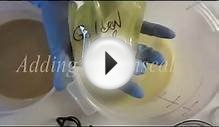
Share this Post
Related posts
Pure Green tea extract
Aids in increasing fat burning* Helps promote appetite control* Antioxidant support* The health-benefiting effects of green…
Read MoreGreen tea extract reviews
NATURAL antioxidants vary quite wildly in their pricing. Pycnogenol and Enzogenol are at the high end, with red wine extract…
Read More
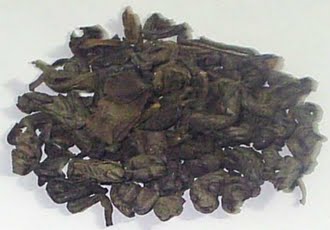 Green tea is made solely from the leaves of Camellia sinensis that have undergone minimal oxidation during processing. Green tea originates in China and has become associated with many cultures throughout Asia. It has recently become more widespread in the West...
Green tea is made solely from the leaves of Camellia sinensis that have undergone minimal oxidation during processing. Green tea originates in China and has become associated with many cultures throughout Asia. It has recently become more widespread in the West...
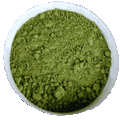 Matcha (抹茶, pronounced [mat.tɕa]), also maccha, refers to finely milled or fine powder green tea. The cultural activity called the Japanese tea ceremony centers on the preparation, serving, and drinking of matcha. In modern times, matcha has also come to be used to...
Matcha (抹茶, pronounced [mat.tɕa]), also maccha, refers to finely milled or fine powder green tea. The cultural activity called the Japanese tea ceremony centers on the preparation, serving, and drinking of matcha. In modern times, matcha has also come to be used to...
